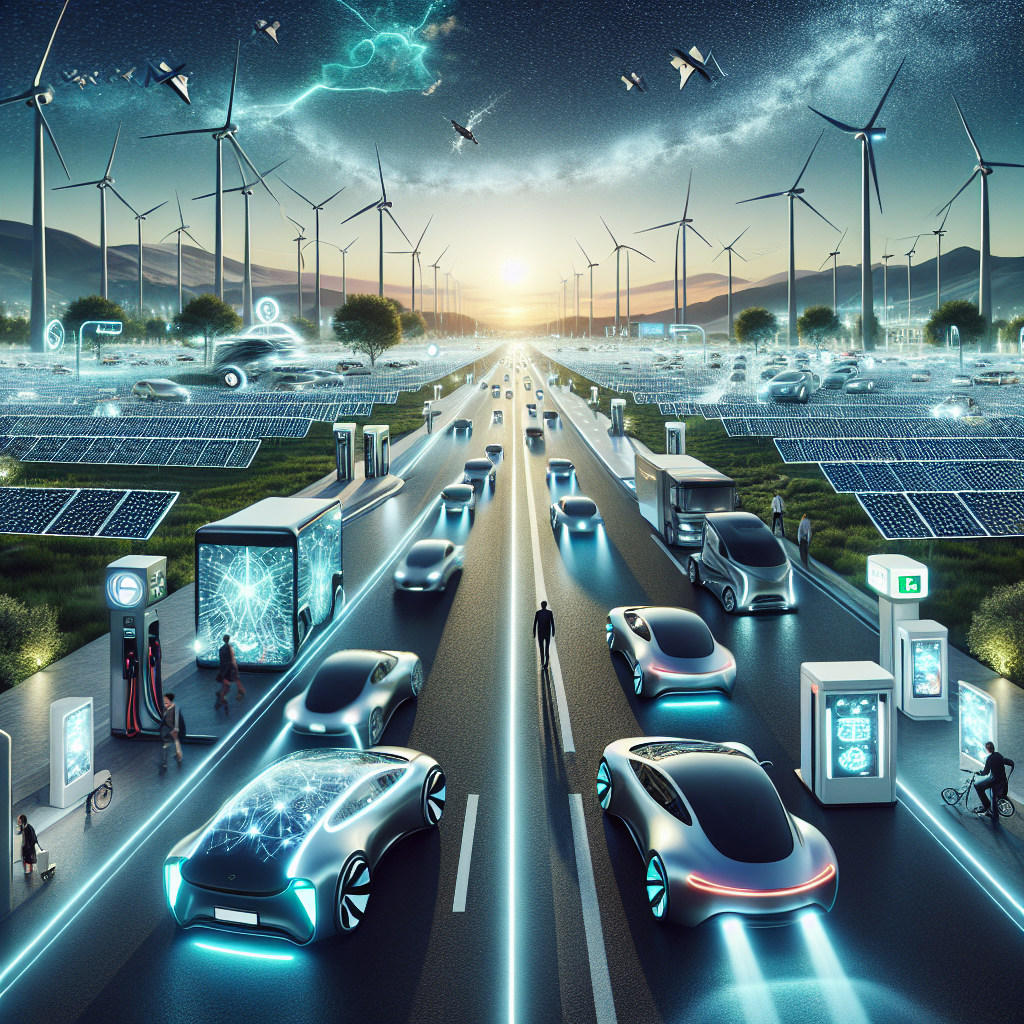-
Table of Contents
The Future of Electric Cars
Electric cars have been around for decades, but it wasn’t until recently that they started gaining popularity and becoming a viable option for everyday transportation. With advancements in technology and increasing concerns about the environment, the future of electric cars looks bright. In this article, we will explore the current state of electric cars and what the future holds for this rapidly growing industry.
The Rise of Electric Cars
The first electric car was invented in the 19th century, but it wasn’t until the 21st century that they started gaining traction. The rise of electric cars can be attributed to several factors, including government incentives, advancements in battery technology, and increasing environmental concerns.
Government incentives, such as tax credits and subsidies, have played a significant role in promoting the adoption of electric cars. In countries like Norway, where electric cars are exempt from taxes and tolls, they make up more than half of all new car sales. In the United States, federal tax credits of up to $7,500 are available for electric car buyers, making them more affordable for the average consumer.
Advancements in battery technology have also been a driving force behind the rise of electric cars. The development of lithium-ion batteries has made it possible for electric cars to have a longer range and faster charging times. This has addressed one of the major concerns of potential buyers – range anxiety.
Moreover, increasing concerns about the environment and the need to reduce carbon emissions have also contributed to the popularity of electric cars. With electric cars producing zero emissions, they are seen as a more environmentally friendly alternative to traditional gasoline-powered cars.
The Current State of Electric Cars
As of 2021, electric cars make up only a small percentage of total car sales globally. However, the numbers are steadily increasing, and experts predict that electric cars will dominate the market in the near future. In 2020, electric car sales increased by 43%, despite the overall decline in car sales due to the COVID-19 pandemic.
One of the main barriers to the widespread adoption of electric cars is the lack of charging infrastructure. While there are over 100,000 charging stations in the United States, they are still not as widespread as gas stations. This can be a deterrent for potential buyers, especially for those who live in apartments or do not have access to a private garage for charging.
Another challenge for electric cars is their higher upfront cost compared to traditional cars. However, as battery technology continues to improve and production costs decrease, the price of electric cars is expected to become more competitive with gasoline-powered cars.
The Future of Electric Cars
The future of electric cars looks promising, with many major car manufacturers investing heavily in electric vehicle technology. Companies like Tesla, Nissan, and General Motors have already made significant strides in the electric car market, and others are following suit.
One of the most significant developments in the electric car industry is the introduction of self-driving technology. Electric cars are seen as the ideal platform for self-driving cars due to their reliance on advanced sensors and software. This could revolutionize the way we think about transportation and make electric cars even more appealing to consumers.
Moreover, with the increasing demand for renewable energy sources, electric cars are expected to play a significant role in the future of energy. With the ability to store energy from renewable sources, electric cars can help balance the grid and reduce our reliance on fossil fuels.
Case Studies and Statistics
Several case studies and statistics demonstrate the potential of electric cars in the future. For example, in 2020, Tesla’s Model 3 was the best-selling electric car globally, with over 365,000 units sold. This is a significant increase from 2019, where the Model 3 was the third best-selling electric car.
In Norway, electric cars accounted for 54.3% of all new car sales in 2020, making it the first country in the world where electric cars outsold traditional cars. This is a testament to the success of government incentives and the increasing popularity of electric cars among consumers.
Conclusion
The future of electric cars is bright, with advancements in technology, increasing environmental concerns, and government incentives driving their popularity. While there are still challenges to overcome, such as charging infrastructure and upfront costs, the potential of electric cars to revolutionize the transportation industry and reduce our carbon footprint is undeniable. As we move towards a more sustainable future, electric cars are expected to play a significant role in shaping the way we think about transportation.
Whether you are a car enthusiast or an environmentalist, the future of electric cars is something to look forward to. With more and more car manufacturers investing in electric vehicle technology, we can expect to see a wider range of options and more affordable prices in the coming years. The rise of electric cars is not just a trend; it is a necessary step towards a cleaner and greener future.
